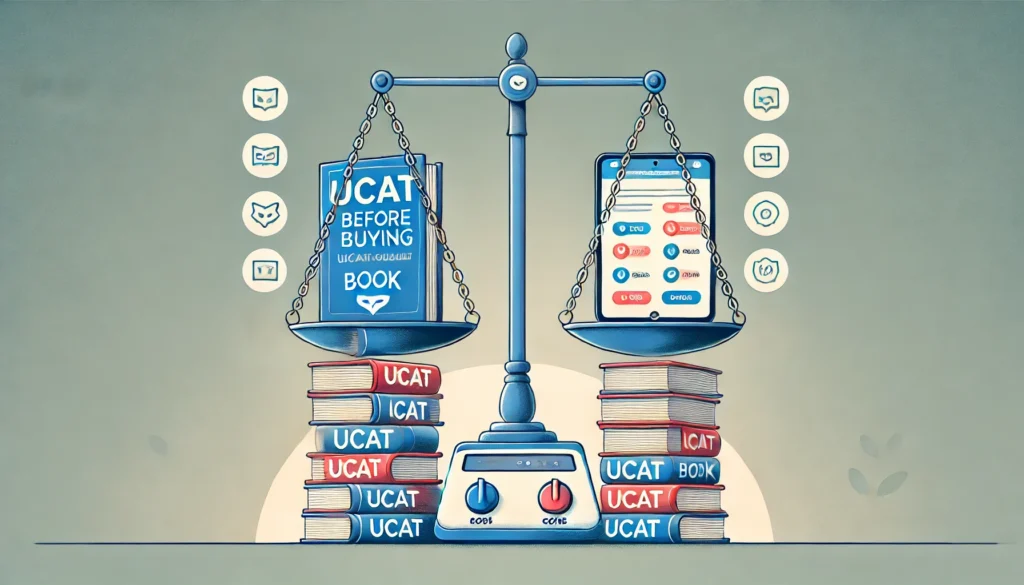
The University Clinical Aptitude Test (UCAT) is a key part of the application process for medical and dental schools in several countries, including the UK, Australia, and New Zealand. Preparing for this test requires strategy and focused study, and many students turn to books as a primary resource. While books offer structure and depth, they also come with limitations, particularly in today’s digital age. Let’s explore the pros and cons of using a UCAT book to prepare for the exam.
Pros of Using UCAT Books for Preparation
1. Comprehensive Coverage of Material
Books often provide detailed explanations of the key sections of the UCAT, covering all areas—Verbal Reasoning, Decision Making, Quantitative Reasoning, Abstract Reasoning, and Situational Judgement. A well-structured book can guide you through the content, offering clear examples and practice questions with detailed answers. This helps students understand the format and scope of the exam in a systematic, easy-to-follow manner.
2. In-Depth Explanations
Unlike many online resources that may only provide brief feedback on questions, books often offer in-depth explanations. This can be especially useful when tackling complex questions in the Decision Making or Quantitative Reasoning sections, as understanding the reasoning behind the correct answer is essential for improving.
3. Offline Access
A key advantage of books is their accessibility offline. You can take them anywhere and study at your convenience without needing an internet connection. This can be particularly useful for students who prefer to study while commuting or in places with limited access to the internet.
Cons of Using a UCAT Book Preparation
1. Limited Question Volume
One of the major drawbacks of books is the limited number of practice questions they can offer. Unlike online platforms, which can generate endless question banks, books have a finite number of questions. For an exam like the UCAT, where familiarity with question types and speed is crucial, having access to a large volume of questions is essential for building confidence and improving performance.
2. Lack of Timed Practice
The UCAT is a time-pressured exam, and practising under timed conditions is critical for success. While books can provide questions and exercises, they cannot simulate the experience of taking the test under real-time constraints. Without timed practice, students may struggle to manage their time effectively during the actual exam.
3. Inability to Mimic the Computer-Based Test Environment
The UCAT is a computer-based test, so practising on paper or in a book does not fully prepare students for the real test environment. Online resources and official UCAT practice tests offer interactive interfaces, allowing students to practise skills like navigating between sections, flagging questions, and managing an on-screen timer. Books, by contrast, cannot replicate these vital elements of the test-taking experience.
4. Static Content
Books are static, meaning they cannot be updated regularly. In contrast, online platforms can constantly evolve, adding new questions, tips, and strategies to reflect the latest trends or updates in the UCAT. Using outdated books can result in students practising with questions that may no longer align with the current format or difficulty level of the test.
5. Less Interactive Learning
Books lack the interactive features that many online tools offer, such as instant feedback, performance tracking, and adaptive learning. Modern online platforms often provide these advantages, allowing students to focus on their weaker areas and track their progress over time. Books, on the other hand, require manual effort to assess your performance and identify areas for improvement.
Conclusion
Using books to prepare for the UCAT comes with both benefits and limitations. Nonetheless, they may fall short when it comes to the volume of practice questions, real-time test simulation, and interactive features that modern online platforms provide. For this reason, we recommend using books as a supplementary resource rather than your primary tool. For specific recommendations, have a read of our recommended <UCAT books>.